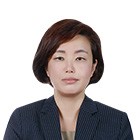Video
Events
Recent Events
"The Arab Spring and Korean Experiences of Political Transition"
- Expert
- Jang Ji-Hyang
- Hit
- 754
- Date
- 12-12-05 15:00
From December 4 to 5, 2012, the Middle East and North Africa (MENA) Center at the Asan Institute for Policy Studies hosted the “Asan-AUC Dialogue” in conjunction with the American University in Cairo. This year’s conference, titled “The Arab Spring and Korean Experiences of Political Transition”, featured a series of presentations by Asan Institute researchers on the diverse range of political, economic, and scientific dynamics that shaped the Korean democratization experience. The conference presentations also elaborated on the potential insights and lessons that these experiences may have for the current political transition taking place in Egypt today as part of the regional phenomenon commonly described as the “Arab Spring”.
Held amid the political upheaval caused by Egyptian President Mohamed Morsi’s decision to hold a constitutional referendum on December 15, “The Arab Spring and Korean Experiences of Political Transition” was a timely reminder that the path from political transition to stable democratic governance is often fraught with obstacles and disruptions, but also that great progress can be made in a remarkably short period.
Dr. J. James Kim, Director of the Center for American Politics and Policy (CAPP), opened the conference and the first session on political transitions by discussing the patterns of political activism and democratization that occurred in South Korea during and after its political transition. Importantly, he showed that the number of demonstrations and strikes actually rose following the initial change in regime as a byproduct of greater political freedom, leaving cause for optimism regarding Egypt’s protracted unrest.
Next, Dr. Baek Buhm-Suk, Deputy Director of the International Law and Conflict Resolution Center (ILCRC) presented on South Korea’s experience with monitoring and protecting human rights in the post-transition era. Dr. Baek focused on the role of the National Human Rights Commission of Korea (NKRCK) in raising public awareness of human rights over the past decade and pushing for legal and institutional reforms to better protect against rights violations.
Opening the second session on economic transitions, Dr. Jang Ji-Hyang, Director of the Middle East and North Africa (MENA) Center, discussed the success of the Korean model of economic development which transformed the impoverished war-torn country into one of the world’s largest economies. Dr. Jang argued that two key factors facilitated the success of the Korean model. First, the quality of state institutions in terms of law enforcement capacity, solid monetary and fiscal institutions, and transparent conduct enabled authoritarian leaders to pursue aggressive export-led growth strategies. Second, the Korean bureaucracy—selected by highly competitive, merit-based, civil service entrance examinations—was able to effectively manage collaborative relationships with conglomerates, help businesses obtain technology and credit, and protect the domestic market from foreign competition.
Expanding upon Dr. Jang’s discussions of the Korean economic success story, Dr. Park Jiyoung, Director of the Science and Technology Policy Center (STPC), discussed the long-term limitations to Korea’s labor and capital-led growth model vis-à-vis total productivity. Consequently, Dr. Park contended that Korea needed to pursue an innovation-led growth model in the twentieth century capitalizing on its strengths in the science and technology sectors. In an era of intense competition, innovations in high-technology product development are likely to form an integral component to the traditional industrial sectors of heavy industry and manufacturing.
Finally, Dr. Shin Chang-Hoon, Director of the Asan Nuclear Technology and Policy Center (ANTPC), concluded the conference by discussing South Korea’s emerging role as a responsible global stakeholder in the field of nuclear security. Dr. Shin’s presentation examined how Korea has rapidly transitioned from a largely introspective, development-oriented country into an active participant in global forums with global responsibilities. Using the recent 2012 Seoul Nuclear Security Summit as a case study, Dr. Shin discussed how Korea has been able to proactively shape the global nuclear non-proliferation agenda and support the push towards nuclear disarmament.
Following the conference was a special research panel presented by scholars from both the Asan Institute and the American University in Cairo, titled “Political Transition in Egypt: Some Current Assessments.” The panel discussed the preliminary stages of a joint public opinion survey project being prepared between the two organizations on popular assessments on recent events across the region and the actions of political leaders. Among the distinguished panelists were Dr. Magued Osman, former Egyptian Minister of Communication and Director of Baseera (The Egyptian Center for Public Opinion Research), Dr. Gamal Abdel Gawad Soltan, former Director of the Al-Ahram Center for the Political and Strategic Studies, and Dr. Jee-Kwang Park, Assistant Professor at the American University in Cairo.
Date: December 4 to 5, 2012
Location: New Campus, The American University in Cairo, Egypt

Jang Ji-Hyang
Principal Fellow, Director
Dr. JANG Ji-Hyang is a Principal Fellow and director of the Center for Regional Studies at the Asan Institute for Policy Studies. Dr. Jang served as a policy advisor on Middle East issues to South Korea’s Ministry of Foreign Affairs (2012-2018) and currently serves to Ministries of Industry, Justice, and Defense. Her research interests include political economy of the Middle East and North Africa, political Islam, comparative democratization, terrorism, and state-building. Dr. Jang is the author of numerous books and articles, including The Essential Guide to the Middle East (Sigongsa 2023 in Korean), The Arab Spring: Will It Lead to Democratic Transitions?(with Clement M. Henry (eds.), Palgrave Macmillan 2013), “Disaggregated ISIS and the New Normal of Terrorism” (Asan Issue Brief 2016), “Islamic Fundamentalism” (International Encyclopedia of the Social Sciences 2008) and a Korean translation of Fawaz Gerges’ Journey of the Jihadist: Inside Muslim Militancy (Asan Institute 2011). Dr. Jang received a B.A. in Turkish studies and M.A. in political science from the Hankuk University of Foreign Studies and her Ph.D. in political science from the University of Texas at Austin.
view more


